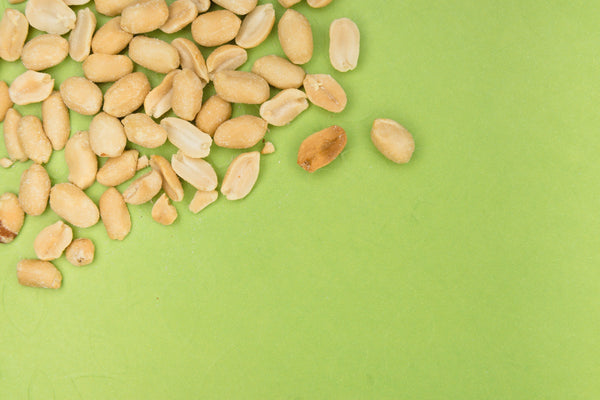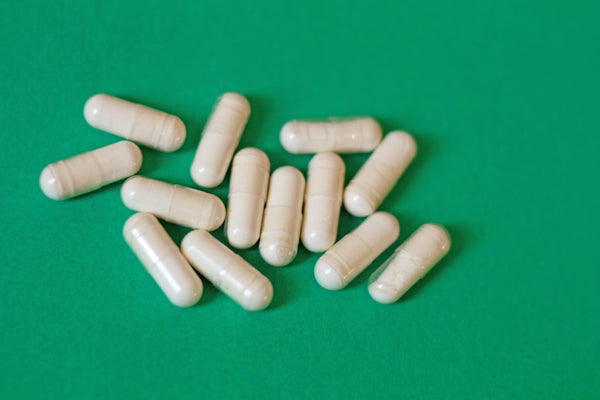6 Immunity Tips for Your Kid from a Pediatrician for Back to School Season
share this article

As parents, we all want our kids to stay healthy and resilient, especially during the back-to-school season when they are exposed to various germs and illnesses. Research has shown that 70% of the immune system is located in the gut, so the condition of our kids’ gut health is crucial to their overall well-being [8]. As a pediatric expert, I'm here to share research-backed strategies to boost your kid’s immunity and keep them thriving throughout the school year.
Vitamin D: The Sunshine Vitamin
Starting with one of the superstar nutrients for kid’s immunity - Vitamin D. This essential vitamin plays a vital role in supporting the immune system, helping their bodies fend off infections [1]. During the back-to-school season, when our kids spend more time indoors, it's essential to ensure they get enough Vitamin D. Encourage outdoor activities and consider Vitamin D supplements, especially if they don't get much sunlight exposure.
|
Kid’s Vitamin D Recommendations by Age |
|
|---|---|
|
Age |
Recommended Vitamin D Dosage |
|
Infants (0 - 12 months) |
400 IU |
|
Toddlers (1 - 3 years) |
1000 IU |
|
Kids (3 - 18 years) |
1000 - 2000 IU |
Source: John Hopkins
These are the general recommendations I would provide for kids based on age, however, I recommend consulting your personal healthcare practitioner and potentially getting your little one’s vitamin D levels tested to determine the proper dose.
Prebiotics and Probiotics: The Gut's Best Friends
Now, let's dive into the world of kid’s gut health and the correlation with immunity. Prebiotics and probiotics are like superheroes for your kid’s digestive system and immune response. Prebiotics, found in foods like avocados, bananas and oats, act as fuel for the good bacteria in the gut. Friendly gut bacteria, also called probiotics, can be found in yogurt and fermented foods and help directly introduce beneficial bacteria into your little’s microbiome [2]. Together, this combination supports a balanced gut and helps enhance immune function to reduce the risk for potential infections.
For additional gut health support, Begin Health’s Growing Up Prebiotic is an amazing toddler and kids’ supplement that contains a simple but powerful blend of prebiotics, including Human Milk Oligosaccharides (2’-FL Human Milk Oligosaccharides), a prebiotic with the same molecular structure as the most abundant prebiotic in human breast milk. Contrary to their name, Human Milk Oligosaccharides are not made from human milk. Growing Up Prebiotics also contain chicory root fiber, which supports softer and more frequent stooling [8]. This combination helps provide essential nourishment to feed good gut bacteria and supports a balanced gut environment for your little one.
Daily reads to help your little ones lead happier and healthier lives.
Join the
Happy Gut Club
Eat a Healthy Diet: Fueling the Immune System
A nutritious diet is the foundation of a robust immune system. Encourage your kid to eat a variety of colorful fruits and vegetables, providing essential vitamins and minerals [3]. Include foods rich in antioxidants, like berries and leafy greens, as they help neutralize harmful free radicals and reduce inflammation, thereby supporting immunity [3].
Hydrate: Quench Your Immune System's Thirst
Hydration is often overlooked but it plays a crucial role in supporting the immune system. Water helps flush out toxins and ensures the proper functioning of various bodily processes [5]. Provide your kid with plenty of water and limit sugary drinks, as excess sugar can suppress immune function. To learn more about how excess sugar in the diet affects a kid's digestion, check out our blog on Sugar Addiction in Kids.
|
Kids Hydration Recommendations by Age |
|
|---|---|
|
Age |
Liquid Amount |
|
Infants (0 - 6 months) |
Breastmilk or formula as their only source of hydration. Small sips of water can be introduced with solid foods between 6 - 12 months. |
|
Toddlers (1 - 3 years) |
Half an ounce of water for every pound of body weight |
|
Kids (ages 4 and above) |
Half an ounce of water for every pound of body weight |
Source: Children’s Hospital of Orange County
Washing Hands: Simple Yet Effective
Teach your kids the power of handwashing. Regular handwashing is one of the simplest and most effective ways to prevent the spread of infections. Encourage them to wash their hands with plain soap and water for at least 20 seconds, especially before meals and after using the restroom [4]. According to the FDA, antibacterial soaps are no more effective than regular soap and water for preventing illness. Overuse of antibacterial products can reduce the healthy bacteria on your skin. Therefore, plain soap and water is still the best way to prevent common bacterial infections [9].
Maintain Proper Rest and Sleep: Recharge for Immunity
Adequate sleep is a superhero's secret weapon for immunity! During sleep, the body repairs and regenerates, bolstering the immune system's ability to defend against pathogens [6]. Establish a consistent bedtime routine, ensuring your little one gets the recommended amount of sleep for their specific age group. Below is the recommended amount of sleep per age group for our little ones:
|
Kids Sleep Recommendations |
|
|---|---|
|
Age |
Hours (per day) |
|
Newborns (0 - 3 months) |
14 - 17 hours per day |
|
Infants (4 - 11 months) |
12 - 15 hours per day |
|
Toddlers (1 - 2 years) |
11 - 14 hours per day |
|
Preschoolers (3 - 5 years) |
10 - 13 hours per night |
|
School-age kids (6 - 12 years) |
9 - 11 hours per night |
|
Teens (13 - 17 years) |
8 - 10 hours per night |
Source: Cleveland Clinic
Summary
We as parents play a significant role in nurturing our kids’ gut health and immunity. By incorporating these science-backed strategies such as a healthy diet, hydration, and rest into their daily routine, you can provide vital support to your kids’ immune system, helping them stay strong and healthy throughout the back-to-school season and beyond.

















